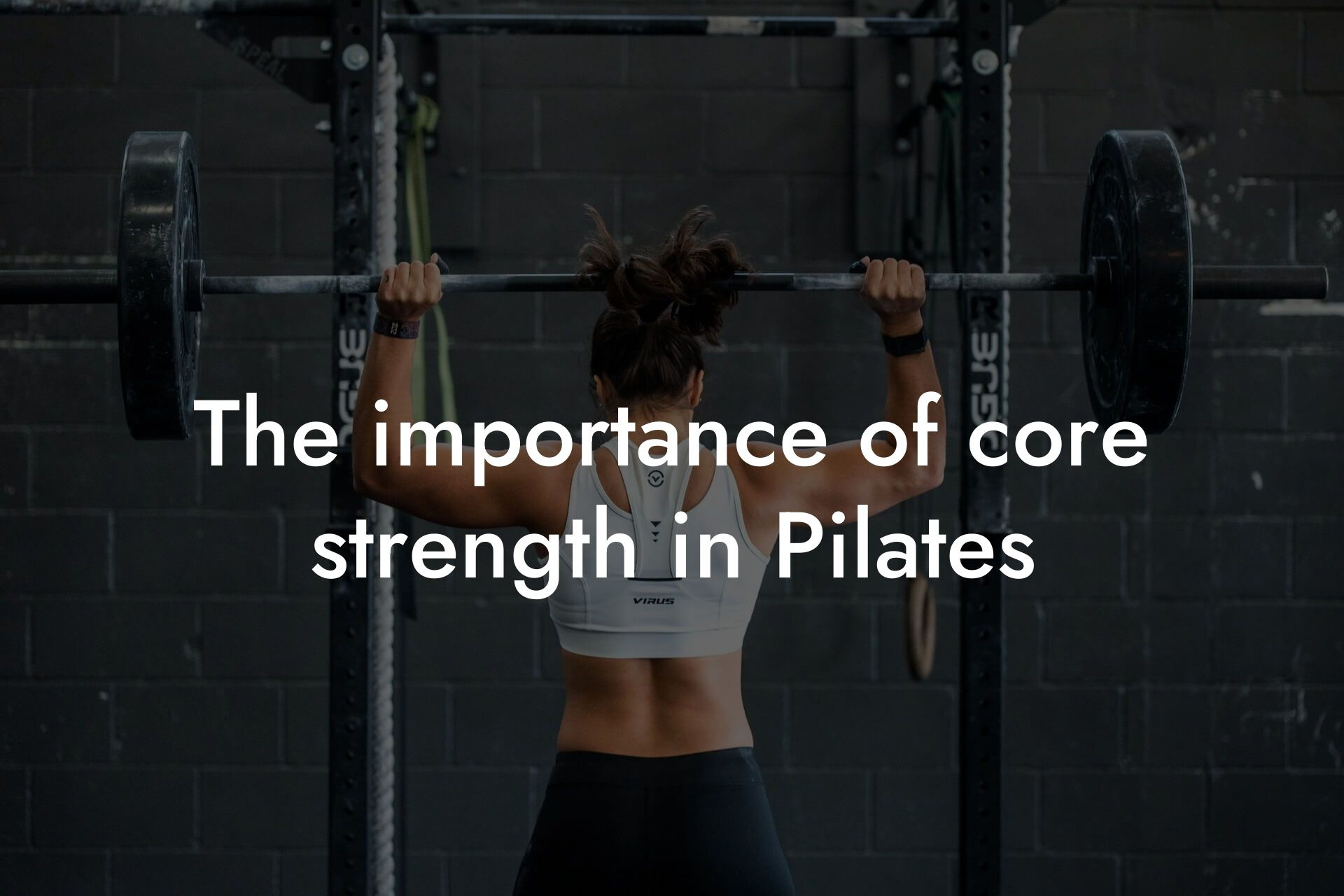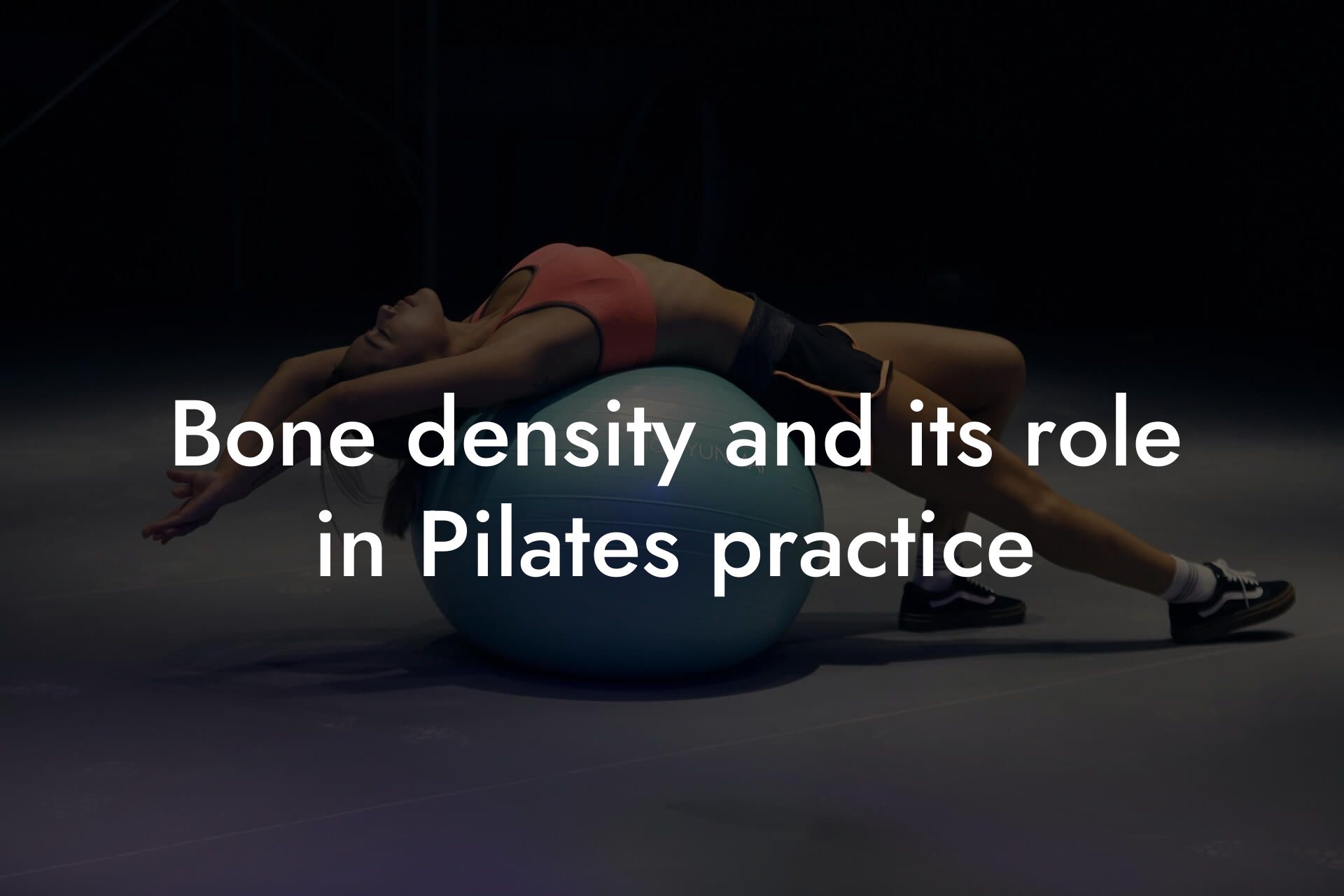As a high-earning professional, you understand the importance of maintaining a healthy and toned physique. Pilates is an excellent way to achieve this goal, but to get the most out of your training, you need to have a deep understanding of your body composition and bone density. This is where DEXA scans come in – a game-changing technology that provides a comprehensive assessment of your body, helping you optimize your Pilates training for maximum results.
Table of Contents
What is a DEXA Scan?
A DEXA (Dual-Energy X-ray Absorptiometry) scan is a non-invasive, low-radiation medical imaging technique that measures bone density, lean mass, and fat mass. It's a quick and painless procedure that uses X-rays to produce detailed images of your body composition. The scan provides a precise measurement of your bone density, muscle mass, and body fat percentage, giving you a comprehensive understanding of your overall health and fitness.
How Does a DEXA Scan Benefit Pilates Training?
A DEXA scan offers several benefits for Pilates enthusiasts. By providing a detailed analysis of your body composition, it helps you:
- Identify areas of muscle imbalance and weakness, allowing you to target specific exercises to improve overall strength and stability.
- Track changes in body fat percentage and lean mass, enabling you to adjust your diet and exercise routine for optimal weight management.
- Monitor bone density, reducing the risk of osteoporosis and fractures, and improving overall bone health.
- Create a personalized Pilates program tailored to your specific needs and goals, ensuring you get the most out of your workouts.
Understanding Body Composition Analysis
A DEXA scan provides a detailed breakdown of your body composition, including:
- Lean mass: This refers to your muscle mass, which is essential for maintaining strength, mobility, and overall health.
- Fat mass: This includes both subcutaneous fat (just beneath the skin) and visceral fat (around organs). Excess fat, particularly visceral fat, can increase the risk of chronic diseases.
- Bone density: This measures the density of your bones, which is crucial for maintaining strong bones and preventing osteoporosis.
- Body fat percentage: This is the percentage of your body weight that is comprised of fat. A healthy body fat percentage varies depending on age, gender, and fitness goals.
How to Use DEXA Scan Results to Inform Your Pilates Training
Once you have your DEXA scan results, you can use them to:
- Create a personalized Pilates program that targets areas of muscle imbalance and weakness.
- Focus on exercises that improve bone density, such as weight-bearing and resistance exercises.
- Adjust your diet and nutrition plan to support your fitness goals, whether that's weight loss, muscle gain, or improved overall health.
- Monitor progress and make adjustments to your training program as needed.
Common Misconceptions About DEXA Scans and Pilates
There are several misconceptions about DEXA scans and Pilates that need to be addressed:
- Myth: DEXA scans are only for older adults or those with osteoporosis. Reality: DEXA scans are beneficial for anyone looking to optimize their Pilates training and improve overall health.
- Myth: Pilates is only for flexibility and core strength. Reality: Pilates can be tailored to improve overall fitness, including strength, balance, and body composition.
- Myth: DEXA scans are expensive and inaccessible. Reality: Many health and fitness centers, including Tano Performance Group, offer affordable and convenient DEXA scan services.
Incorporating DEXA scans into your Pilates training is a game-changer for high-earning professionals looking to optimize their physical appearance and overall health. By providing a comprehensive understanding of your body composition and bone density, DEXA scans help you create a personalized training program that targets your specific needs and goals. At Tano Performance Group, we're committed to helping you unlock your full potential with our state-of-the-art DEXA scan technology and expert guidance. Take the first step towards achieving your fitness goals today.
Get Started with Tano Performance Group
Ready to unlock the power of DEXA scans for optimized Pilates training? Contact us at Tano Performance Group to schedule your DEXA scan and take the first step towards achieving your fitness goals. Our team of experts will guide you every step of the way, providing personalized support and guidance to help you reach your full potential.
Frequently Asked Questions
What is a DEXA scan and how does it relate to Pilates training?
A DEXA (Dual-Energy X-ray Absorptiometry) scan is a non-invasive, pain-free test that measures bone density, body composition, and fat distribution. In the context of Pilates training, DEXA scans can provide valuable insights to optimize your workout routine, improve overall fitness, and enhance body shape.
How does a DEXA scan measure bone density?
A DEXA scan uses low-level X-rays to measure the density of your bones, typically in the hip and spine. This information helps identify any potential bone loss or osteoporosis, allowing you to take proactive steps to improve bone health through Pilates exercises and other lifestyle changes.
What is body composition, and how does a DEXA scan measure it?
Body composition refers to the percentage of fat and lean mass in your body. A DEXA scan provides a detailed breakdown of your body composition, including fat mass, lean mass, and bone mineral density. This information helps you understand how Pilates training is impacting your overall physique and make data-driven decisions to achieve your fitness goals.
How accurate are DEXA scans in measuring body fat percentage?
DEXA scans are highly accurate in measuring body fat percentage, with a margin of error of around 1-2%. This makes them a reliable tool for tracking changes in body composition over time, allowing you to refine your Pilates training and nutrition plan for optimal results.
Can DEXA scans help with weight loss?
Yes, DEXA scans can be a valuable tool in weight loss efforts. By providing a detailed picture of your body composition, DEXA scans help you identify areas for improvement and track progress over time. This information can be used to create a personalized Pilates training plan that targets specific areas of fat loss and muscle gain.
How often should I get a DEXA scan?
The frequency of DEXA scans depends on your individual goals and needs. For most people, a scan every 6-12 months is sufficient to track progress and make adjustments to their Pilates training and nutrition plan. However, if you're experiencing significant changes in your body composition or bone density, more frequent scans may be necessary.
What are the benefits of using DEXA scans in Pilates training?
The benefits of using DEXA scans in Pilates training include: personalized workout plans, improved body composition, enhanced bone density, and data-driven progress tracking. By incorporating DEXA scans into your Pilates routine, you can optimize your training, reduce the risk of injury, and achieve your fitness goals more efficiently.
How do I prepare for a DEXA scan?
To prepare for a DEXA scan, avoid eating a heavy meal or consuming caffeine for at least 2 hours prior to the scan. Wear loose, comfortable clothing and remove any metal objects, such as jewelry or glasses. It's also a good idea to consult with your healthcare provider or Pilates instructor to discuss any specific preparation or precautions.
Is a DEXA scan safe?
Yes, DEXA scans are safe and non-invasive. The scan itself takes only a few minutes, and the radiation exposure is very low, equivalent to a few days of natural background radiation. Additionally, DEXA scans do not require any injections or invasive procedures, making them a comfortable and convenient option for tracking body composition and bone density.
Can DEXA scans help with injury prevention?
Yes, DEXA scans can help with injury prevention by identifying areas of muscle imbalance, poor posture, or bone density deficiencies. By addressing these issues through targeted Pilates exercises and stretches, you can reduce the risk of injury and maintain optimal physical function.
How does Pilates training improve bone density?
Pilates training can improve bone density by stimulating osteogenesis, the process by which new bone tissue is formed. Through targeted exercises and resistance training, Pilates helps strengthen muscles and bones, reducing the risk of osteoporosis and fractures.
What is the ideal body fat percentage for men and women?
The ideal body fat percentage varies depending on age, gender, and fitness goals. For men, a body fat percentage of 8-19% is considered healthy, while for women, it's 21-33%. However, these are general guidelines, and individual goals may vary. A DEXA scan can provide a personalized assessment of your body composition and help you set realistic, achievable goals.
Can DEXA scans help with athletic performance?
Yes, DEXA scans can help with athletic performance by providing valuable insights into body composition and bone density. By optimizing body fat percentage, lean mass, and bone density, athletes can improve power, speed, and endurance, giving them a competitive edge in their respective sports.
How does Pilates training improve body composition?
Pilates training can improve body composition by increasing lean mass, reducing fat mass, and enhancing overall muscle tone. Through targeted exercises and resistance training, Pilates helps build long, lean muscles, improving overall physique and reducing the risk of chronic diseases.
What are the risks associated with low bone density?
The risks associated with low bone density include osteoporosis, fractures, and osteopenia. Low bone density can also increase the risk of chronic pain, limited mobility, and decreased quality of life. By incorporating DEXA scans and Pilates training into your fitness routine, you can reduce the risk of these complications and maintain optimal bone health.
Can DEXA scans help with menopause symptoms?
Yes, DEXA scans can help with menopause symptoms by tracking changes in bone density and body composition. During menopause, women may experience a decline in bone density, leading to osteoporosis and other complications. By monitoring these changes through DEXA scans, women can take proactive steps to maintain bone health and reduce the risk of menopause-related symptoms.
How does Pilates training improve posture?
Pilates training can improve posture by strengthening core muscles, increasing flexibility, and enhancing overall body awareness. By targeting specific muscle groups and improving alignment, Pilates helps correct postural imbalances, reducing the risk of back pain, neck strain, and other musculoskeletal issues.
Can DEXA scans help with nutrition planning?
Yes, DEXA scans can help with nutrition planning by providing a detailed picture of your body composition. By understanding your macronutrient needs and body fat percentage, you can create a personalized nutrition plan that supports your fitness goals and optimizes your overall health.
How does Pilates training improve flexibility?
Pilates training can improve flexibility by increasing range of motion, reducing muscle tension, and enhancing overall mobility. Through targeted stretches and exercises, Pilates helps lengthen muscles, improve joint mobility, and reduce the risk of injury.
What are the benefits of combining Pilates with other forms of exercise?
The benefits of combining Pilates with other forms of exercise include improved overall fitness, enhanced muscle balance, and increased caloric burn. By incorporating Pilates into your existing workout routine, you can optimize your training, reduce the risk of injury, and achieve your fitness goals more efficiently.
Can DEXA scans help with stress management?
Yes, DEXA scans can help with stress management by providing a sense of control and empowerment over your body composition and bone density. By tracking changes in your body and making data-driven decisions, you can reduce stress and anxiety related to your physical health.
How does Pilates training improve overall health?
Pilates training can improve overall health by enhancing physical function, reducing the risk of chronic diseases, and improving mental well-being. By incorporating Pilates into your fitness routine, you can optimize your overall health, increase energy levels, and improve your quality of life.
What are the limitations of DEXA scans?
The limitations of DEXA scans include: radiation exposure, although minimal; limitations in measuring certain types of body fat; and potential errors in measurement due to factors such as metal implants or excess movement during the scan. However, these limitations are minor, and DEXA scans remain a valuable tool for tracking body composition and bone density.
Can DEXA scans help with aging-related health issues?
Yes, DEXA scans can help with aging-related health issues by tracking changes in bone density, body composition, and muscle mass. By identifying potential issues early, you can take proactive steps to maintain optimal health, reduce the risk of chronic diseases, and improve overall quality of life.
Here are some related articles you might love...
- The importance of core strength in Pilates
- Recovery strategies for Pilates practitioners
- Bone density and its role in Pilates practice
- Nutrition tips for maximizing energy during Pilates sessions
- How body composition impacts Pilates performance
- How to integrate Pilates into a balanced fitness routine
- Reducing body fat for improved Pilates results
- Maintaining flexibility and muscle tone with Pilates
- Pilates for injury prevention and rehabilitation
Zak Faulkner
Zak Faulkner is a leading authority in the realm of physical health and body composition analysis, with over 15 years of experience helping professionals optimise their fitness and well-being. As one the experts behind Tano Performance Group, Zak has dedicated his career to providing in-depth, science-backed insights that empower clients to elevate their physical performance and overall health.
With extensive knowledge of DEXA technology, Zak specializes in delivering comprehensive body assessments that offer precise data on body fat, muscle mass, bone density, and overall physique. His expertise enables individuals to make informed decisions and achieve their fitness goals with accuracy and confidence. Zak’s approach is rooted in a deep understanding of human physiology, combined with a passion for helping clients unlock their full potential through personalised strategies.
Over the years, Zak has earned a reputation for his commitment to excellence, precision, and client-focused service. His guidance is trusted by top professionals who demand the best when it comes to their health. Whether advising on fitness programs, nutritional strategies, or long-term wellness plans, Zak Faulkner’s insights are a valuable resource for anyone serious about taking their health and fitness to the next level.
At Tano Performance Group, Zak continues to lead our Content Team revolutionising how professionals approach their physical health, offering unparalleled expertise that drives real results.




